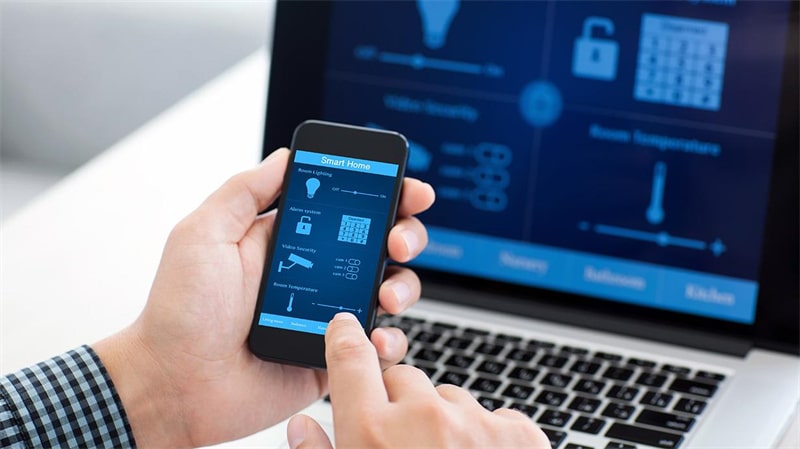
In today's rapidly evolving world, digital technology has become an integral part of various industries, and healthcare is no exception.
The development and adoption of digital solutions have the potential to revolutionize healthcare delivery, improving patient outcomes and transforming the way healthcare services are accessed and delivered. In this blog post, we will explore the top five examples of digital technology development in healthcare and delve into the transformative impact they have on the industry.
Remote Monitoring

Remote monitoring technologies have revolutionized patient care by enabling continuous monitoring and early detection of health issues. With the help of wearable devices and connected sensors, healthcare providers can remotely monitor vital signs, track patient activity, and detect abnormalities in real-time. This proactive approach to healthcare allows for early intervention, preventing complications and improving patient outcomes.
Furthermore, remote monitoring facilitates personalized care, as healthcare professionals can analyze a patient's data and make data-driven decisions to tailor treatment plans accordingly.
Automated Healthcare Systems
Automated healthcare systems have emerged as a game-changer in improving efficiency and patient outcomes. These systems streamline administrative tasks, such as appointment scheduling, billing, and record-keeping, reducing manual errors and administrative burdens.
By automating these processes, healthcare providers can allocate more time and resources to direct patient care, enhancing the overall quality of healthcare delivery. Additionally, automation optimizes resource allocation, ensuring that healthcare facilities operate at maximum efficiency and utilize their resources effectively.
Telehealth
Telehealth has emerged as a transformative solution to expand access to healthcare services, particularly in remote or underserved areas. Through telehealth platforms and video conferencing tools, healthcare providers can offer remote consultations, virtual visits, and remote patient monitoring.
This not only enhances convenience for patients but also reduces barriers to care, such as travel costs and time constraints. Telehealth has proven to be especially beneficial in improving access to specialized care, enabling patients to consult with experts regardless of their geographical location.
Emergency Response Solutions
Digital emergency response solutions have significantly improved emergency care by enhancing response times and improving patient outcomes. Mobile apps, wearables, and remote triage systems enable real-time communication and data sharing between emergency responders and healthcare professionals.
These technologies facilitate quick and accurate assessment of emergencies, allowing healthcare providers to arrive prepared and equipped with relevant information. By reducing response times and providing critical information upfront, digital emergency response solutions save lives and improve the overall quality of emergency care.
Artificial Intelligence (AI)
Artificial Intelligence (AI) is revolutionizing healthcare by assisting in medical diagnosis, personalized treatment plans, and predictive analytics. AI algorithms can analyze vast amounts of patient data, including medical records, imaging results, and genetic information, to identify patterns and make accurate predictions. This enables healthcare providers to make more precise diagnoses, develop personalized treatment plans, and improve patient outcomes.
AI-powered tools also facilitate predictive analytics, allowing healthcare organizations to anticipate disease outbreaks, optimize resource allocation, and make data-driven decisions for better healthcare delivery.
Digital Health Consultants

In the ever-evolving landscape of digital healthcare, many organizations play a vital role in healthcare as digital health consultants. They bring together expertise in technology development, strategy, and innovation to help healthcare providers and organizations navigate the complex world of digital healthcare.
These companies collaborate with stakeholders to identify challenges and opportunities, develop innovative solutions, and implement digital strategies that drive transformative change in the healthcare industry. Their deep understanding of emerging technologies and their practical application in healthcare enables them to create tailored and impactful solutions for their clients.
Conclusion
Digital technology development in healthcare is transforming the industry, with significant advancements in remote monitoring, automated healthcare systems, telehealth, emergency response solutions, and artificial intelligence.
These examples highlight the immense potential of digital solutions in improving patient outcomes, enhancing convenience, and revolutionizing healthcare delivery.










